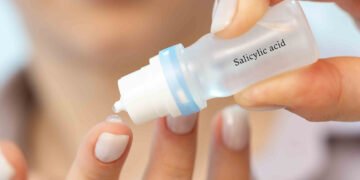As we age, our body’s collagen production naturally decreases, leading to wrinkles, joint pain, and other signs of aging. Collagen, a vital protein for skin elasticity and overall health, plays a crucial role in maintaining our body’s structure.

While bone broth is often recommended as a source of collagen, it’s not the only option. In fact, there are several alternative methods to boost collagen production that are more effective, accessible, and suitable for various dietary preferences, including vegetarian and vegan options.
This article will explore three science-backed strategies to enhance collagen levels without relying on bone broth.
Key Takeaways
- Discover alternative methods to boost collagen production beyond bone broth.
- Learn how a nutrient-rich diet can support collagen health.
- Explore targeted supplements that promote collagen production.
- Understand the role of collagen-boosting skincare ingredients in maintaining healthy skin.
- Find out how these methods can be tailored to suit various dietary needs.
Understanding Collagen and Its Importance
The importance of collagen cannot be overstated, as it provides structure and elasticity to our skin, bones, and connective tissues. Collagen is the most abundant protein in the human body, making up about one-third of total protein content.
What Is Collagen and Why Do We Need It?
Collagen forms the structural framework for skin, bones, muscles, tendons, and other connective tissues. There are different types of collagen, including Type I, II, and III, each with specific roles in the body. Collagen’s crucial functions include providing skin elasticity, strengthening bones, supporting joint flexibility, and maintaining tissue integrity.
As
“Collagen is the protein that gives skin its structure, suppleness, and stretch. As we age, we produce less collagen in our skin every year — hence the tendency toward wrinkles and thinning skin we see the older we get.”
This highlights the significance of collagen for overallhealthandbodyfunction.
Collagen contains unique amino acid profiles, including glycine, proline, and hydroxyproline, which are difficult to obtain in sufficient quantities from other protein sources. This emphasizes that collagen is essential not just for cosmetic reasons but for overall structural health and mobility.
The Bone Broth Myth: Why It’s Not the Only Option
While bone broth has been touted as a collagen-rich food, its actual collagen content is often exaggerated. Many people think that bone broth is a good source of collagen, but research suggests otherwise.
According to a 2019 study, bone broth usually doesn’t contain enough collagen to make a noticeable difference. The collagen in bone broth gets broken down during digestion into individual amino acids, just like any other protein. This means that the body doesn’t directly absorb the collagen from bone broth; instead, it uses the amino acids to build new proteins.

The Limited Collagen Content in Bone Broth
The collagen content in bone broth varies depending on the bones used, cooking time, and preparation methods. While bone broth can be nutritious, its reputation as a collagen powerhouse may be exaggerated. Moreover, the collagen content isn’t standardized, making it difficult to know exactly how much you’re consuming.
Some key points to consider:
- Bone broth is not a standardized product, so collagen content can vary greatly.
- The body’s ability to absorb collagen from bone broth is limited due to digestion.
- Other sources of collagen may be more effective for boosting collagen production.
Collagen Alternatives: Plant-Based Options for Vegans and Vegetarians

Plant-based diets can be rich in nutrients that support collagen synthesis. While it’s true that collagen is exclusively found in animal tissues, vegans and vegetarians can still boost their collagen levels through the right nutrition.
Plants don’t contain collagen, but they are excellent sources of vitamins and minerals like vitamin C, zinc, and amino acids that are crucial for collagen production in the body. By focusing on these nutrients, individuals can support their body’s natural collagen production process.
Can Vegans Boost Collagen Naturally?
Yes, vegans can boost collagen naturally by consuming a diet rich in specific nutrients. Some key points include:
- Plants provide the necessary building blocks for collagen synthesis.
- A well-planned plant-based diet can maintain healthy collagen levels.
- Lab-grown vegan collagen alternatives are emerging as viable options.
- Supporting natural collagen production can be more effective than consuming collagen directly.
Method 1: Nutrient-Rich Diet for Natural Collagen Production
To boost collagen naturally, focus on consuming a nutrient-dense diet. Collagen is a protein made up of specific amino acids, primarily glycine, proline, and hydroxyproline. These amino acids serve as the building blocks for collagen, and adequate intake is crucial for collagen synthesis.

A diet rich in these amino acids can support the body’s natural ability to produce collagen. Food sources include both animal and plant-based options. For instance, lysine, glycine, and proline are found in high-protein foods. Glycine and proline are particularly important, with proline helping with skin health and wound healing, and glycine regulating sleep and balancing blood sugar levels.
Essential Amino Acids for Collagen Synthesis
The body combines these amino acids in a complex process to create new collagen fibers. Consuming a variety of protein sources ensures you get all the necessary amino acids for optimal collagen synthesis. Complete proteins containing all essential amino acids provide the best foundation for collagen production. Certain amino acid supplements can be beneficial for those who may not get enough from their diet.
By focusing on a nutrient-rich diet and understanding the role of amino acids like proline and glycine, individuals can support their body’s natural collagen production. This approach not only enhances collagen but also contributes to overall health and well-being.
Top 10 Collagen-Boosting Foods to Add to Your Diet

Incorporating the right foods into your diet can significantly boost collagen production. A well-balanced diet that includes essential nutrients is crucial for maintaining healthy skin and supporting collagen synthesis.
Fruits and Vegetables That Enhance Collagen
Citrus fruits like oranges, grapefruit, lemons, and limes are rich in vitamin C, a nutrient that plays a vital role in collagen production. Berries such as strawberries, raspberries, blueberries, and blackberries are also excellent sources of vitamin C. Other fruits and vegetables that support collagen production include:
- Leafy greens like spinach and kale, which contain chlorophyll that may increase collagen precursors in the skin.
- Garlic, which contains sulfur, a trace mineral that helps synthesize and prevent the breakdown of collagen.
- Beans and legumes, which are excellent sources of the amino acids needed for collagen production.
- Nuts and seeds, which provide zinc and copper, minerals that act as cofactors for collagen synthesis.
- Tomatoes and bell peppers, which offer both vitamin C and lycopene, helping protect existing collagen from damage.
By incorporating these top 10 collagen-boosting foods into your diet, you can create a foundation for ongoing collagen production and support overall skin health.
Method 2: Targeted Supplements for Enhanced Collagen Production
While a balanced diet is crucial for overall health, supplements can play a significant role in enhancing collagen production. For individuals looking to boost their collagen levels, certain supplements can provide the necessary nutrients to support collagen synthesis.

Vitamin C Supplements: The Collagen Catalyst
Vitamin C is essential for collagen production as it helps in the hydroxylation of proline and lysine amino acids, which is crucial for collagen synthesis. Vitamin C supplements can provide a concentrated dose of this vital nutrient, supporting the body’s natural collagen production.
The recommended dosage of vitamin C for optimal collagen synthesis varies, but typically ranges from 500 to 1000 mg per day. Different forms of vitamin C supplements, such as ascorbic acid and sodium ascorbate, offer varying levels of bioavailability. Choosing a high-quality vitamin C supplement can help improve skin elasticity and overall collagen health.
In addition to vitamin C, other supplements can support collagen production. Amino acid supplements containing glycine, proline, and lysine provide the raw materials necessary for collagen synthesis. Marine collagen supplements, known for their high bioavailability, offer an alternative to traditional collagen sources. Other nutrients like zinc, copper, and silica also play a role in maintaining healthy collagen levels.
When selecting supplements, it’s crucial to prioritize quality and be aware of potential interactions with medications. Supplements should complement a healthy diet, not replace it, to achieve the best results in collagen production.
Choosing the Right Collagen Supplement

The collagen supplement market is flooded with options, making it crucial to know what to look for. With various types and sources available, understanding the differences is key to making an informed decision.
What to Look for in Quality Supplements
When selecting a collagen supplement, it’s essential to consider the type of collagen, its source, and the form it comes in. Type I collagen is often recommended for skin health, while Type II is beneficial for joint health.
Research suggests that marine collagen may be more bioavailable and particularly helpful for skin elasticity. Look for supplements that have undergone third-party testing to ensure quality and purity.
Collagen supplements come in various forms, including powders, capsules, and liquids. The choice of form depends on personal preference and convenience. When comparing sources, bovine, marine, and chicken collagen have different amino acid profiles and bioavailability.
Method 3: Skincare Ingredients That Boost Collagen Production
The third method for enhancing collagen production involves using specific skincare ingredients that target the skin directly. This approach focuses on topical applications that stimulate collagen synthesis, improving skin elasticity and texture.
Retinol: The Gold Standard for Collagen Stimulation
Retinol, derived from Vitamin A, is a powerhouse ingredient in skincare. It penetrates to the dermis, fueling skin cell regeneration and boosting natural collagen production. By activating fibroblasts, retinol stimulates the production of new collagen, enhancing skin firmness and reducing fine lines and wrinkles.
To minimize irritation while maximizing benefits, it’s essential to introduce retinol into your skincare routine gradually. Start with lower concentrations and gradually increase as your skin becomes more tolerant.
Other skincare ingredients that boost collagen production include vitamin C serums, which not only stimulate collagen synthesis but also protect existing collagen from damage. Peptides act as messengers, signaling skin cells to produce more collagen. Advanced skincare products may also include growth factors that play a crucial role in collagen-stimulating skincare.
For optimal results, consistent use of these ingredients over time is necessary. Moreover, combining topical treatments with internal approaches provides comprehensive collagen support.
| Skincare Ingredient | Function |
|---|---|
| Retinol | Stimulates collagen production, enhances skin cell regeneration |
| Vitamin C Serums | Boosts collagen synthesis, protects existing collagen |
| Peptides | Signals skin cells to produce more collagen |

As Dr. Jane Smith, a dermatologist, notes, “Using the right skincare ingredients can significantly improve collagen production and overall skin health. It’s about finding the right balance and being consistent.”
By incorporating these skincare ingredients into your routine, you can effectively boost collagen production and achieve healthier, more youthful-looking skin.
Recommended Collagen-Boosting Skincare Products

The right skincare products can significantly boost collagen levels, leading to healthier, more youthful-looking skin. To achieve this, it’s essential to choose products with proven ingredients that stimulate collagen production.
Budget-Friendly Options
For those on a budget, there are several affordable options that can deliver results without breaking the bank. Versed’s Gentle Retinol Serum is a great starting point, offering the benefits of retinol without the irritation. Mad Hippie’s Super A Serum is another affordable option that combines retinol with other nourishing ingredients.
For vitamin C serums, look for products with stable formulations and appropriate concentrations. While specific product names aren’t mentioned here, the key is to find serums that are both effective and gentle on the skin.
Peptide-based products are also effective for collagen enhancement. These products can be found across various price points, from affordable drugstore options to high-end luxury products.
Multi-Ingredient Formulations
Products that combine several collagen-boosting actives can offer enhanced results. These multi-ingredient formulations can be particularly effective for addressing specific skin concerns or skin types.
Consistency in application is more important than the price point for seeing results. Whether you’re using a drugstore find or a luxury product, sticking to your skincare routine is key.
Lifestyle Factors That Affect Collagen Production
Beyond nutritional intake, various lifestyle factors play a crucial role in collagen production and preservation. Our daily habits can either support or hinder the body’s natural collagen synthesis.
One of the primary lifestyle factors affecting collagen is sun exposure. UV rays can cause significant collagen breakdown by generating free radicals that damage collagen fibers and impair new collagen synthesis. Therefore, daily use of SPF is essential to protect skin and maintain healthy collagen levels.
The Importance of Sun Protection
Preventing collagen breakdown starts with protecting your skin from the sun. Using a broad-spectrum sunscreen daily, even on cloudy days, is crucial. This simple habit can significantly reduce the risk of collagen degradation.
Other lifestyle factors also play a significant role. For instance, quality sleep is vital as growth hormone released during deep sleep stimulates collagen synthesis. Managing chronic stress is equally important, as high cortisol levels can break down collagen. Regular exercise stimulates collagen production through increased circulation and cellular renewal, while adequate hydration supports optimal cellular function, including collagen synthesis.
By addressing these lifestyle factors, individuals can significantly enhance the effectiveness of their dietary and topical collagen-boosting efforts, leading to healthier, more resilient skin and a more youthful appearance.
Foods and Habits That Damage Collagen
While boosting collagen production is crucial, it’s equally important to identify and avoid foods and habits that can damage existing collagen. A well-informed approach to diet and lifestyle can significantly impact collagen health.
The Impact of Sugar
Consuming high amounts of sugar and refined carbohydrates can lead to glycation, a process that creates advanced glycation end products (AGEs). These AGEs make collagen fibers stiff and weak, ultimately damaging skin elasticity and overall collagen integrity. Avoiding excessive sugar intake is crucial for maintaining healthy collagen.
Other dietary culprits that can damage collagen include processed foods, which often contain preservatives and additives that may trigger inflammation and collagen breakdown. Certain cooking methods, such as high-temperature grilling, can also create AGEs that damage collagen when consumed.
Lifestyle Factors Affecting Collagen
Lifestyle habits play a significant role in collagen health. Smoking damages collagen through both the chemicals in cigarettes and repetitive facial movements. Alcohol consumption dehydrates the skin and depletes the body of nutrients needed for collagen synthesis. Excessive sun exposure triggers enzymes called matrix metalloproteinases that break down collagen.
| Collagen-Damaging Factor | Effect on Collagen |
|---|---|
| Sugar and Refined Carbohydrates | Leads to glycation, creating AGEs that stiffen and weaken collagen fibers. |
| Smoking | Damages collagen through chemicals and repetitive facial movements. |
| Excessive Sun Exposure | Triggers matrix metalloproteinases that break down collagen. |
| Processed Foods | Contains preservatives and additives that may trigger inflammation and collagen breakdown. |
Reducing these collagen-damaging factors is just as important as adding collagen-boosting elements to your routine. By being mindful of diet and lifestyle choices, individuals can better support their collagen health and overall well-being.
How to Create a Complete Collagen-Boosting Routine
To maximize collagen production, it’s crucial to adopt a holistic routine that encompasses dietary changes, supplements, and skincare practices. This comprehensive approach ensures that you’re supporting collagen synthesis from multiple angles, leading to more effective and noticeable results.
A well-rounded collagen-boosting routine begins with a nutrient-rich diet that includes foods known to support collagen production. Incorporating a variety of collagen-boosting foods into your meals can help provide the necessary building blocks for collagen synthesis.
Daily Diet Plan for Maximum Collagen Production
A daily diet plan that maximizes collagen production should include a mix of vitamin C-rich foods, omega-3 fatty acids, and essential amino acids. For example, starting your day with a breakfast that includes scrambled eggs with spinach and berries can provide a boost of vitamin C and protein.
Key Components of a Collagen-Boosting Diet:
- Vitamin C-rich foods like citrus fruits and leafy greens
- Omega-3 fatty acids found in fatty fish and nuts
- Essential amino acids from lean proteins and whole grains
In addition to dietary changes, incorporating targeted supplements and a consistent skincare routine can further enhance collagen production. A morning and evening skincare routine that features collagen-stimulating ingredients like retinol and vitamin C can help stimulate collagen synthesis and improve skin texture.
Consistency and patience are key, as collagen production takes time to show visible results. By combining these elements and maintaining a healthy lifestyle, including a balanced sleep schedule, regular exercise, and stress management practices, you can create a comprehensive collagen-boosting routine that yields lasting benefits.
Measuring Results: How to Tell If Your Collagen Is Improving
Measuring the effectiveness of collagen-boosting efforts can be done through various observable changes. As you enhance your collagen production, you can expect to see improvements in your skin, overall health, and even the strength of your bones.
Visible Skin Changes to Look For
One of the most noticeable indicators of improved collagen production is the visible changes in your skin. Look for increased firmness, reduced fine lines, and improved elasticity. You can perform a simple pinch test to assess skin elasticity over time.
Other signs that your collagen is improving include stronger nails and healthier hair. You may also notice improvements in joint comfort and mobility, signaling enhanced collagen in connective tissues. While internal improvements in bone density and tissue strength may not be visible, they are equally important benefits.
To track subtle changes, consider keeping a journal or taking periodic photos. It’s essential to remember that individual results vary based on age, genetics, and consistency with collagen-boosting practices. Research suggests that patience and persistence are key to achieving desired collagen levels and overall health benefits.
- Regularly assess your skin’s firmness and elasticity.
- Monitor your joint comfort and mobility.
- Note the health and strength of your nails and hair.
By paying attention to these changes and maintaining a consistent collagen-boosting routine, you can effectively measure the improvements in your collagen production and overall skin health.
Conclusion
Boosting collagen production without relying on bone broth is not only possible but also highly effective when done correctly. By incorporating a combination of a nutrient-rich diet, targeted supplements, and effective skincare routines, individuals can significantly enhance their collagen health. This multi-faceted approach yields the best results, supporting not just skin appearance but also joint health, bone strength, and overall tissue integrity.
The three key methods outlined provide a comprehensive framework for collagen support. It’s essential to experiment with different combinations to find what works best for individual needs. Consistency is key, as collagen production is a long-term investment in overall health and appearance. By taking control of your collagen health naturally, you can optimize this natural bodily process at any age with the right strategies.









































Discussion about this post